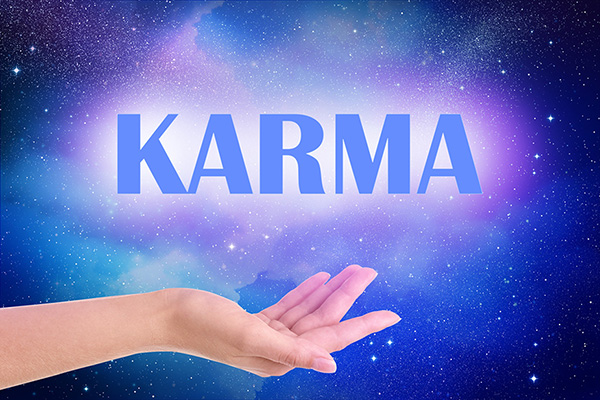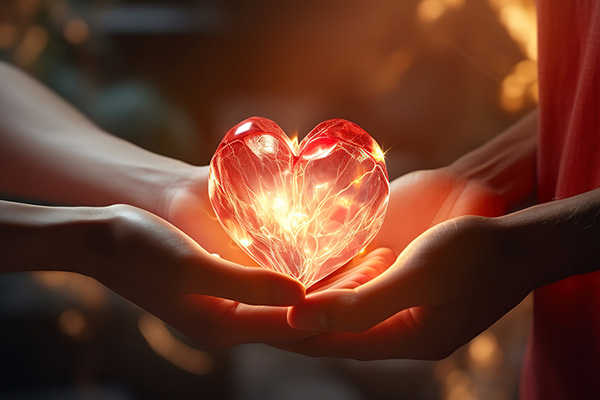How To Be More Present In Your Life
 We often hear the advice that ‘being present’ is an important spiritual practice to master on our journey through life. Being present with ourselves and in the moment. I like to think of it as being with yourself wherever you go and whatever you do. This is certainly true, but what exactly does it mean? And with all the busyness of life and keeping up with our daily responsibilities, how do you become more present in your life?
We often hear the advice that ‘being present’ is an important spiritual practice to master on our journey through life. Being present with ourselves and in the moment. I like to think of it as being with yourself wherever you go and whatever you do. This is certainly true, but what exactly does it mean? And with all the busyness of life and keeping up with our daily responsibilities, how do you become more present in your life?
Firstly, cultivating ‘presence’ requires time management and effective planning. It is important to organise the responsibilities of our lives in a manageable way. Otherwise, we find ourselves in a constant state of worry and stress, having to manage daily demands ‘on the fly’. And this is a sure way to lose our presence.
Planning ahead may seem like the opposite of being ‘in the moment’, but it is actually essential. When we are busy making plans for the coming week, thinking about what we need to prepare for and making decisions about how to organise our time and spend our energy, we don’t think much about the ‘present moment.’ But this is something we need to do in order to then be more present in our daily lives. It is key to cultivating presence.
Spiritual Self-Care Or Ego Indulgence?
 Spiritual or metaphysical practice is a pursuit designed to help bring greater meaning and fulfillment to our lives. It is a lifestyle that requires us to be very honest with ourselves and very intentional about the choices we make. But lately I’ve seen a lot of discourse around spirituality that basically encourages you to do pretty much whatever you want in the name of ‘free will’ and ‘self-care.’
Spiritual or metaphysical practice is a pursuit designed to help bring greater meaning and fulfillment to our lives. It is a lifestyle that requires us to be very honest with ourselves and very intentional about the choices we make. But lately I’ve seen a lot of discourse around spirituality that basically encourages you to do pretty much whatever you want in the name of ‘free will’ and ‘self-care.’
Free will is sacred. Yes, it’s true that we are divine, spiritual beings who get to enjoy this incredible adventure of physical life. We get to choose how we move in the world, what we want for ourselves, and how we want to live. But there are two sides to this coin. Yes, we can choose what we want to manifest and how we wish to live our lives, but that does not absolve us of our karmic responsibilities and the consequences of our actions.
I’ve written before about karma and how it’s not meant to be a punishment, but rather a teacher. There are to metaphysical laws that are the basis to our karmic responsibility in this lifetime, namely the universal law of cause and effect and the spiritual law of karma.
The universal law of cause and effect is that for every action there is a reaction. There is a natural order in the universe in which our actions always have consequences, both good and bad.
The spiritual law of karma is a more specific application of the law of cause and effect. According to this law, the totality of our actions in this life, as well as all of our past lives, determine our future. This means that our actions create the conditions for our future experiences, both good and bad.
Karma Is A Teacher, Not An Avenger
 People often talk about karma as if it’s some form of divine punishment or retribution that will eventually be visited upon those who have wronged them. Letting karma “take care of it” is a comforting reassurance that we may be rewarded for being the ‘bigger person’ in unfair situations. And certainly it is always advisable to do the right thing when others are being petty or behaving badly.
People often talk about karma as if it’s some form of divine punishment or retribution that will eventually be visited upon those who have wronged them. Letting karma “take care of it” is a comforting reassurance that we may be rewarded for being the ‘bigger person’ in unfair situations. And certainly it is always advisable to do the right thing when others are being petty or behaving badly.
But this is not karma.
The universe is not in the business of handing out ‘karmic punishment,’ for we are not judged as ‘good’ or ‘bad’ for our choices and actions. All of our choices and actions have value and teach us lessons. So, why would there be any need for a universal system of punishment? Or reward, for that matter?
This is not to say that karma does not exist. On the contrary, we can see karma at work all the time in everyday life, down to the most mundane things we choose to do. However, karma is not a force of reckoning, but the cause and effect of energy, which is a universal law.
When we live a heart-centered life, doing good deeds and being kind to ourselves and others, we will feel joyful, happy, fulfilled and at peace. We thrive in the vibrant flow of positive energy. On the other hand, when we live a heartless life, do things that are wrong, destructive, and evil, and we are unkind or cruel to ourselves and others, we will feel miserable, hopeless, dissatisfied, depressed. We suffer in the thick mud of negative energy.
How To Ground Your Energy
 ‘Grounding’ is a common term you are likely to encounter early in your spiritual awakening journey. If you are interested in energy work of any kind, grounding is a key technique to help you stay energetically balanced and enhance your metaphysical practice.
‘Grounding’ is a common term you are likely to encounter early in your spiritual awakening journey. If you are interested in energy work of any kind, grounding is a key technique to help you stay energetically balanced and enhance your metaphysical practice.
Essentially grounding is a type of meditation that is quick and very intentional. Through grounding we connect our own energy field or light body with the energy of the Earth. This balances our chakras by clearing out those energies that are no longer serve us. Connecting to the Earth’s energy in this way releases negative patterns, thoughts, emotions, and habits, to achieve a clearer, elevated state of consciousness.
To become more grounded, try this visualization exercise. Start by closing your eyes and focusing on your breathing. If you are used to meditation this will be very familiar, if not that is okay! Just be present with your breath and pay attention to your breathing as you inhale and exhale.
Count to three as you draw in your breath, and again as you exhale. Gradually slow the rhythm of your breathing down and just be present with the experience of the air moving in through your nose and into your chest. Feel your physical body around you as you breathe.
I like to focus on my heart chakra while I do this, but it is not necessary. I just find that as I breathe in and out, I like to feel the swell of air in my chest, as if is ‘hugging my heart.’
Spiritual Awareness Requires A Soul-Body Connection
 A practical way to understand our own spiritual identity within the co-created reality of this world is to think of our soul as the metaphysical software, and our body as the physical hardware. Both software and hardware are needed to have a fully functioning computer that is able to solve problems and complete tasks.
A practical way to understand our own spiritual identity within the co-created reality of this world is to think of our soul as the metaphysical software, and our body as the physical hardware. Both software and hardware are needed to have a fully functioning computer that is able to solve problems and complete tasks.
In spirituality, we tend to focus mostly on the mind or consciousness aspects of our existence, such as intuitions, dreams, psychic experiences, paranormal events, our belief system, and altered states of consciousness achieved through various spiritual modalities, including meditation, chanting, trance-inducing rituals, hypnosis, yoga, music, mandala, and so on.
Yet, we seldom consider the importance of the physical experience we are having. This is a vital component in our spiritual evolution that is often overlooked! As metaphysical, energetic beings, we incarnated in human form with a physical body to have a physical learning experience. There is therefore much spiritual value in making the most of our physical embodiment in this lifetime.
The physical body we are born with unique resonates with our soul consciousness and is designed to support us through our journey on this physical plane. But too often we take for granted this amazing vessel that carries us through life. Soon after our birth we become so used to being in our body that we seldom consider its true value.
Sadly, many of us tend to abuse our body in all sorts of ways, for all sorts of reasons, and yet, our body just keeps on doing everything in its power to keep us healthy and strong, for it to continue carrying us through our spiritual journey in this lifetime.
Be The Change You Wish To See In The World
 Our co-created world has always been full of woes and challenges. To ignore these difficulties is irresponsible, but to focus obsessively on it creates more of the same. So, how can we possibly affect real, meaningful change in the world as mere individuals?
Our co-created world has always been full of woes and challenges. To ignore these difficulties is irresponsible, but to focus obsessively on it creates more of the same. So, how can we possibly affect real, meaningful change in the world as mere individuals?
The answer is simple: we must take personal responsibility for the choices we make, and be intentional about how we are living. In other words, we must begin with ourselves, instead of trying to change everyone else and the world around us.
Our power to make change in the world comes down to taking responsibility for that which we do have control over – ourselves. Change begins in our own backyard.
Rather than pointing out how others might improve, we should focus on what is within our own power to improve. It doesn’t matter how small these changes may be. Once we make a start to improve aspects of our own life, it becomes like a domino effect.
Making improvements in your own world, whether it be cleaning up that pile of junk that’s been cluttering up your home, or dealing with internal ‘junk’ that no longer serves you, will improve your own existence and experience. In turn, simply by doing this for yourself, you may find you inspire others to do the same.
At the very least it will help to improve your own energetic flow and raise your own vibration. You can then take this positive new vibration with you everywhere you go, and it will influence and bless every interaction you have with others.

